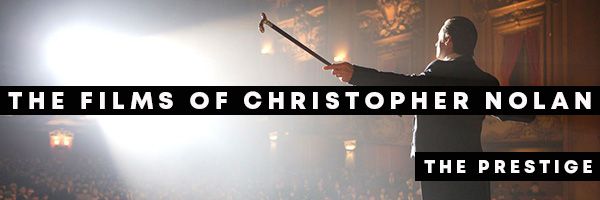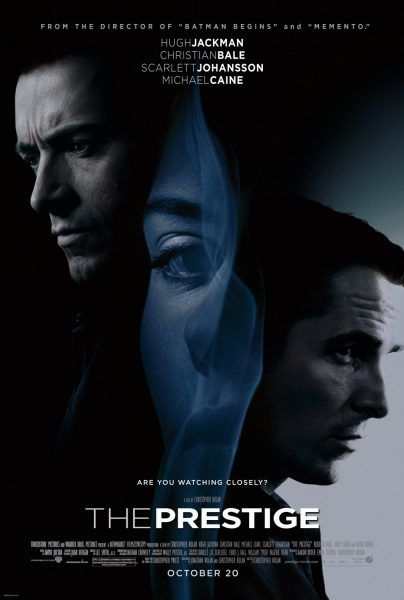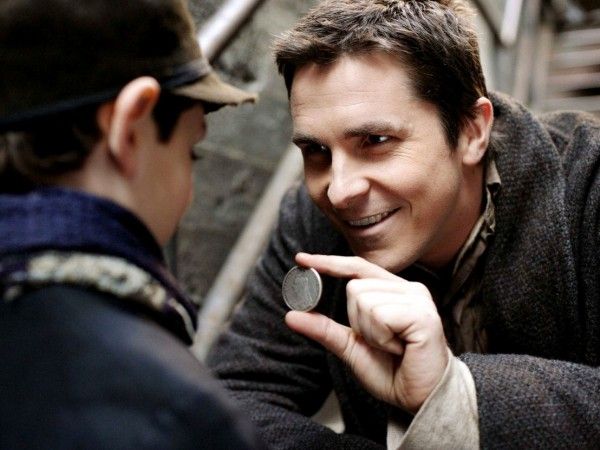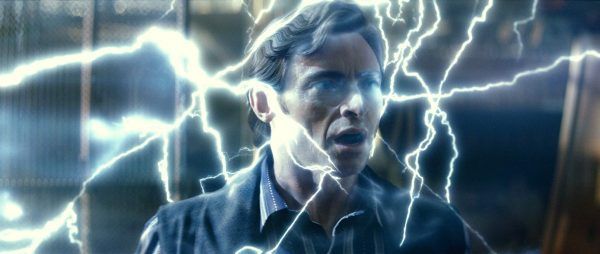Spoilers ahead for The Prestige.
The key film to understanding Christopher Nolan is 2006’s The Prestige. This is the film where Nolan clearly lays out what he believes, how he views himself, and how he views his work. It is the mission statement for Nolan, and yet it feels like it should be his masterpiece. You can see Nolan pouring his heart and soul into this work in a way he hadn’t done since Memento, and yet The Prestige functions better as a statement of intent than a captivating piece of artistry. If you want to understand Nolan, you watch The Prestige, but if you want to enjoy Nolan, you go elsewhere. That’s not to slam The Prestige, which is a perfectly fine movie, but it feels like it should be better considering that it’s so clearly connected to its filmmaker’s ideals.
Although it’s adapted from Christopher Priest’s novel of the same name, The Prestige feels like the kind of movie that only Nolan would make because it’s all about deception, identity, and sacrifice. We’ve seen those ideas surface in previous Nolan works, but here they come to fruition perfectly in the story of dueling magicians who see each other as enemies even though they really mirror of each other. Each man—Robert Angier (Hugh Jackman) and Albert Borden (Christian Bale)—obliterates their identity in order to master the art of deception so thoroughly that the deception eventually bounces back on them. The film poses the question to both men, “How close can you get to something real before it harms you?” That’s a potent question for a director who literally crashed a plane because he needed that reality for his movie about time inversion.
From the beginning, The Prestige lets us know it’s going to be a lot. There’s a mysterious shot of a bunch of top hats in a clearing with the voice over, “Are you watching closely?” Then Michael Caine explains the three-act structure of a magic act: The Pledge, where you present something ordinary; The Turn, where you show it to be extraordinary; and The Prestige, where you do something magnificent to reestablish normalcy. As Cutter (Caine) explains, “It’s not enough to make something disappear. You have to bring it back.” It’s not enough merely to destroy; a true magician finds a way to create, even if that creation is an act of deception. Nolan knows his work is crafting illusions, and his struggle is in how to find something real in the end even though he knows that people want to be fooled. The trick is in finding something real in the lie.
Where The Prestige turns in on itself is that you have two men who have devoted their lives to deception and become so good at it that they’re able to deceive themselves. Their very identities are ripped asunder even though in a way Angier and Borden are two sides of the same coin. Look at all the similarities between the two men beyond their obsession with magic: They’re both widowers. They both permanently injure the other. They taunt each other using diaries that are meant to reveal the truth only to end with a cruel revelation. And, most importantly, they both destroy themselves in order to give themselves over completely to the trick. They’re both the bird in the box.
For Borden, this means living half a life. His Transported Man trick really is quite simple. He uses a double, and the double is his twin. But he commits himself fully to this half-life, where one brother poses as Mr. Fallon while the other gets to live as Borden. This means sometimes the marriage with Sarah (Rebecca Hall) is real, and other times it’s a fraud because one brother falls in love with Olivia (Scarlett Johansson). But to keep the trick real, it means cutting off fingers, wearing disguises, and living only half a life because that’s what the act demands. The act never ends because eventually the act becomes the truth. Borden gives himself over to it completely no matter how much it may hurt himself or other people.
For Angier, his obsession eats away at him. You can chalk it up to grief over losing his wife (Piper Perabo), but Borden’s single-minded obsession with figuring out The Transported Man means he misses so much. He misses that his wife had a closer sensibility to Borden than himself. She’s the one that gave Borden the go-ahead to tie the knot that she thought she could break. She got too close to something real in the illusion, and it killed her. That should be a warning to Angier, and instead he slowly alienates everyone in his life—Olivia, Cutter—sacrificing others for his own desire to beat Borden at his own game. And in the end, the person he has to sacrifice is himself when it turns out that the trick behind Tesla’s (David Bowie) machine is that it creates a clone, so every night one Angier lives and performs the Prestige while the other Angier drops into a tank and drowns.
The most significant difference between the two men is what they represent. Borden is the magician. He understands the craft and can see how everything works on a technical level. Angier is the showman. The reason he can’t comprehend Borden’s The Transported Man is that he can’t believe it’s merely as simple as it appears, and so it drives him to look for the more fantastical explanation. These warring sides can also be taken as a metaphor for Nolan’s creative impulses. He wants to be a master craftsman who meticulously weaves together a captivating narrative while also being a showman who will entertain the masses. Borden represents the ideas that Nolan wishes to convey, and Angier is the method for conveying those ideas. They’re at war because you can’t preach to the audience or else you’ll fail to entertain them. If you entertain them with mindless fluff, no one will remember you.
I love the ideas presented in The Prestige, and while I think Memento is a stronger realization of those ideas, The Prestige paints on a bigger canvas about the power of deception and how we lie to ourselves in order to live. Nolan, perhaps more than any other filmmaker working today, understands the power of narrative and how those narratives can mislead us. We lie to ourselves in order to live, but because our lives are based on lies, we can easily find our way to destruction. Borden may be honest with himself, but he’s not honest with anyone else in his life, and his wife commits suicide. Angier lies to himself more than anyone, and he ends up killing himself many times over because (in one of the film’s more ridiculous turns) he believes that drowning isn’t that bad. Like Leonard Shelby or The Young Man or even Will Dormer, these men rely on lies because it’s the only way they know how to live, and Borden and Angier eventually pay a terrible price for those lies even though their goal is ostensibly to entertain an audience. The medium may seem populist and crass, but the artform—storytelling—requires total devotion and sacrifice.
Where The Prestige falls apart is that it never really reaches the ideals that Nolan and co-writer Jonathan Nolan are working to convey. Like all Nolan movies, The Prestige is beautifully crafted and I love the setting as well as the premise of dueling stage magicians. But overall, the film is uneven. There are plot threads like Root’s (also Jackman) deception and Olivia’s love story that feel better suited for a novel than a movie; they slow down the momentum rather than ratcheting up the tension. Also, for a film packed with talented actors, no one really shines through, which is surprising considering this cast. Everyone is fine, but no one is really popping on screen.
But The Prestige really suffers in its structure. Yet again, Nolan is playing with time and perspective, but here it all feels like a ham-handed attempt at misdirection. Look at everything that happens in the first half hour and you can see how quickly the threads start to get away from Nolan. You’ve got a mysterious opening shot; dueling diaries as Angier and Borden are seemingly writing to themselves but are really writing to their enemy; and a jumbled timeline that’s kind of proceeding chronologically but also jumping back to the end of the story with Borden in prison and being coerced into selling his tricks to the mysterious Lord Cordlow. That may work on an initial viewing where you have an audience trying to spot the trick, but on a repeat viewing, it all becomes tedious and distracting. You no longer want to be fooled; you want to invest in these characters, and instead Borden and Angier are nasty pieces of work.
For a film that so purely channels the personality and ideas of its director and co-writer, I’m always a little amazed that I feel so lukewarm towards The Prestige. This feels like a film I should love and the director’s crowning achievement. Instead, he would continue to explore his main themes in much stronger pictures.
Monday: The Dark Knight




